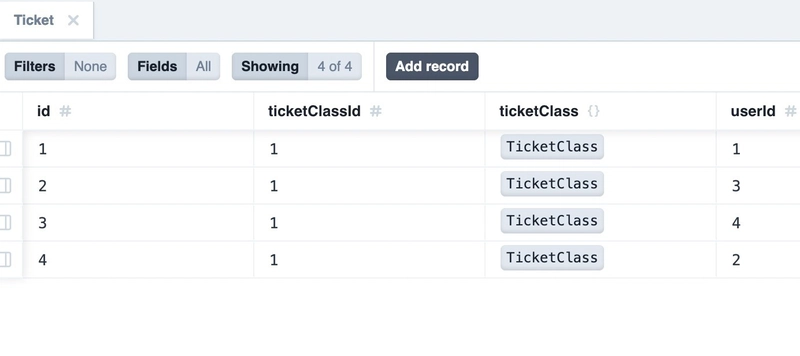Why Regression Testing is Crucial for Enterprise Software Development
The Growing Complexity of Enterprise Systems Modern enterprise software has evolved into intricate ecosystems comprising: Multiple interconnected modules and microservices Complex business logic and workflows Numerous third-party integrations Cross-platform compatibility requirements With each code change potentially impacting multiple system components, regression testing has become not just important but essential for maintaining software integrity. The High Stakes of Enterprise Software Unlike consumer applications, enterprise software failures can result in: Business process disruptions costing millions in lost productivity Compliance violations with severe regulatory penalties Security vulnerabilities exposing sensitive corporate data Reputation damage that erodes customer trust Key Benefits of Rigorous Regression Testing 1.Preventing Costly Defect Escapes A study by IBM found that defects caught in production cost: 6x more to fix than those found in development 15x more than those identified during design 2.Maintaining System Stability Regression testing ensures: Existing functionality remains intact after updates Core business processes continue working as expected Service level agreements (SLAs) are consistently met 3.Enabling Continuous Delivery Effective regression suites allow enterprises to: Accelerate release cycles with confidence Implement CI/CD pipelines safely Reduce manual verification overhead Special Challenges in Enterprise Regression Testing 1.Test Suite Maintenance As systems grow, regression test suites can become: Overly large and time-consuming to execute Difficult to maintain and update Prone to producing false positives 2.Environment Complexity Enterprise systems typically require: Multiple test environments (DEV, QA, UAT, STAGE) Complex test data management Coordination across distributed teams 3.Integration Testing Validating interactions between: Legacy systems and modern components Internal and external services Different versions of APIs Best Practices for Enterprise Regression Testing 1.Smart Test Selection Implement strategies like: Impact analysis to identify high-risk areas Risk-based test prioritization Test case optimization to eliminate redundancy 2.Automation at Scale Leverage solutions like Genqe.ai to: Automate regression test execution Parallelize test runs across environments Generate intelligent test reports 3.Continuous Improvement Regularly: Analyze test effectiveness metrics Refactor test suites based on defect patterns Update tests to match evolving requirements The Future of Enterprise Regression Testing Emerging trends include: AI-powered test impact prediction Self-healing test automation Real-time regression testing in production-like environments Blockchain-verified test results for audit compliance Conclusion For enterprise software development, regression testing isn’t merely a quality assurance activity — it’s a critical business imperative. As systems grow more complex and release cycles accelerate, robust regression testing becomes the safety net that enables innovation while protecting core business functionality. By implementing strategic regression testing practices and leveraging modern tools, enterprises can achieve the delicate balance between rapid delivery and system stability. The most successful organizations treat regression testing not as an afterthought, but as a fundamental component of their software development lifecycle — one that directly contributes to business continuity, risk mitigation, and competitive advantage in the digital marketplace.

The Growing Complexity of Enterprise Systems
Modern enterprise software has evolved into intricate ecosystems comprising:
Multiple interconnected modules and microservices
Complex business logic and workflows
Numerous third-party integrations
Cross-platform compatibility requirements
With each code change potentially impacting multiple system components, regression testing has become not just important but essential for maintaining software integrity.
The High Stakes of Enterprise Software
Unlike consumer applications, enterprise software failures can result in:
Business process disruptions costing millions in lost productivity
Compliance violations with severe regulatory penalties
Security vulnerabilities exposing sensitive corporate data
Reputation damage that erodes customer trust
Key Benefits of Rigorous Regression Testing
1.Preventing Costly Defect Escapes
A study by IBM found that defects caught in production cost:
6x more to fix than those found in development
15x more than those identified during design
2.Maintaining System Stability
Regression testing ensures:
Existing functionality remains intact after updates
Core business processes continue working as expected
Service level agreements (SLAs) are consistently met
3.Enabling Continuous Delivery
Effective regression suites allow enterprises to:
Accelerate release cycles with confidence
Implement CI/CD pipelines safely
Reduce manual verification overhead
Special Challenges in Enterprise Regression Testing
1.Test Suite Maintenance
As systems grow, regression test suites can become:
Overly large and time-consuming to execute
Difficult to maintain and update
Prone to producing false positives
2.Environment Complexity
Enterprise systems typically require:
Multiple test environments (DEV, QA, UAT, STAGE)
Complex test data management
Coordination across distributed teams
3.Integration Testing
Validating interactions between:
Legacy systems and modern components
Internal and external services
Different versions of APIs
Best Practices for Enterprise Regression Testing
1.Smart Test Selection
Implement strategies like:
Impact analysis to identify high-risk areas
Risk-based test prioritization
Test case optimization to eliminate redundancy
2.Automation at Scale
Leverage solutions like Genqe.ai to:
Automate regression test execution
Parallelize test runs across environments
Generate intelligent test reports
3.Continuous Improvement
Regularly:
Analyze test effectiveness metrics
Refactor test suites based on defect patterns
Update tests to match evolving requirements
The Future of Enterprise Regression Testing
Emerging trends include:
AI-powered test impact prediction
Self-healing test automation
Real-time regression testing in production-like environments
Blockchain-verified test results for audit compliance
Conclusion
For enterprise software development, regression testing isn’t merely a quality assurance activity — it’s a critical business imperative. As systems grow more complex and release cycles accelerate, robust regression testing becomes the safety net that enables innovation while protecting core business functionality. By implementing strategic regression testing practices and leveraging modern tools, enterprises can achieve the delicate balance between rapid delivery and system stability.
The most successful organizations treat regression testing not as an afterthought, but as a fundamental component of their software development lifecycle — one that directly contributes to business continuity, risk mitigation, and competitive advantage in the digital marketplace.












































































































































































![[The AI Show Episode 142]: ChatGPT’s New Image Generator, Studio Ghibli Craze and Backlash, Gemini 2.5, OpenAI Academy, 4o Updates, Vibe Marketing & xAI Acquires X](https://www.marketingaiinstitute.com/hubfs/ep%20142%20cover.png)



























































































































![[DEALS] The Premium Learn to Code Certification Bundle (97% off) & Other Deals Up To 98% Off – Offers End Soon!](https://www.javacodegeeks.com/wp-content/uploads/2012/12/jcg-logo.jpg)


![From drop-out to software architect with Jason Lengstorf [Podcast #167]](https://cdn.hashnode.com/res/hashnode/image/upload/v1743796461357/f3d19cd7-e6f5-4d7c-8bfc-eb974bc8da68.png?#)









































































































.png?#)

































_Christophe_Coat_Alamy.jpg?#)
 (1).webp?#)




































































































![iPhone 17 Pro Won't Feature Two-Toned Back [Gurman]](https://www.iclarified.com/images/news/96944/96944/96944-640.jpg)
![Tariffs Threaten Apple's $999 iPhone Price Point in the U.S. [Gurman]](https://www.iclarified.com/images/news/96943/96943/96943-640.jpg)





































































































































